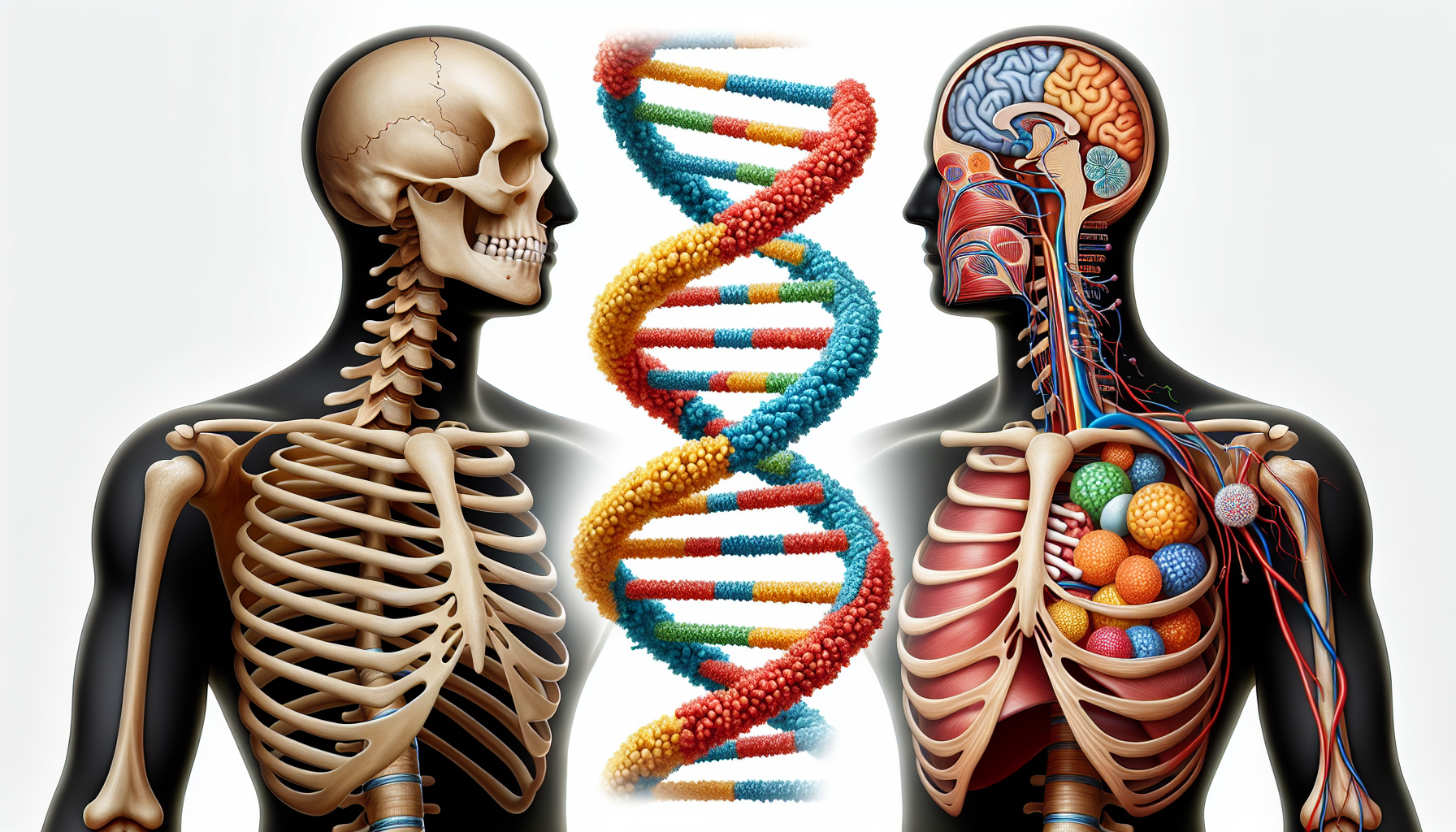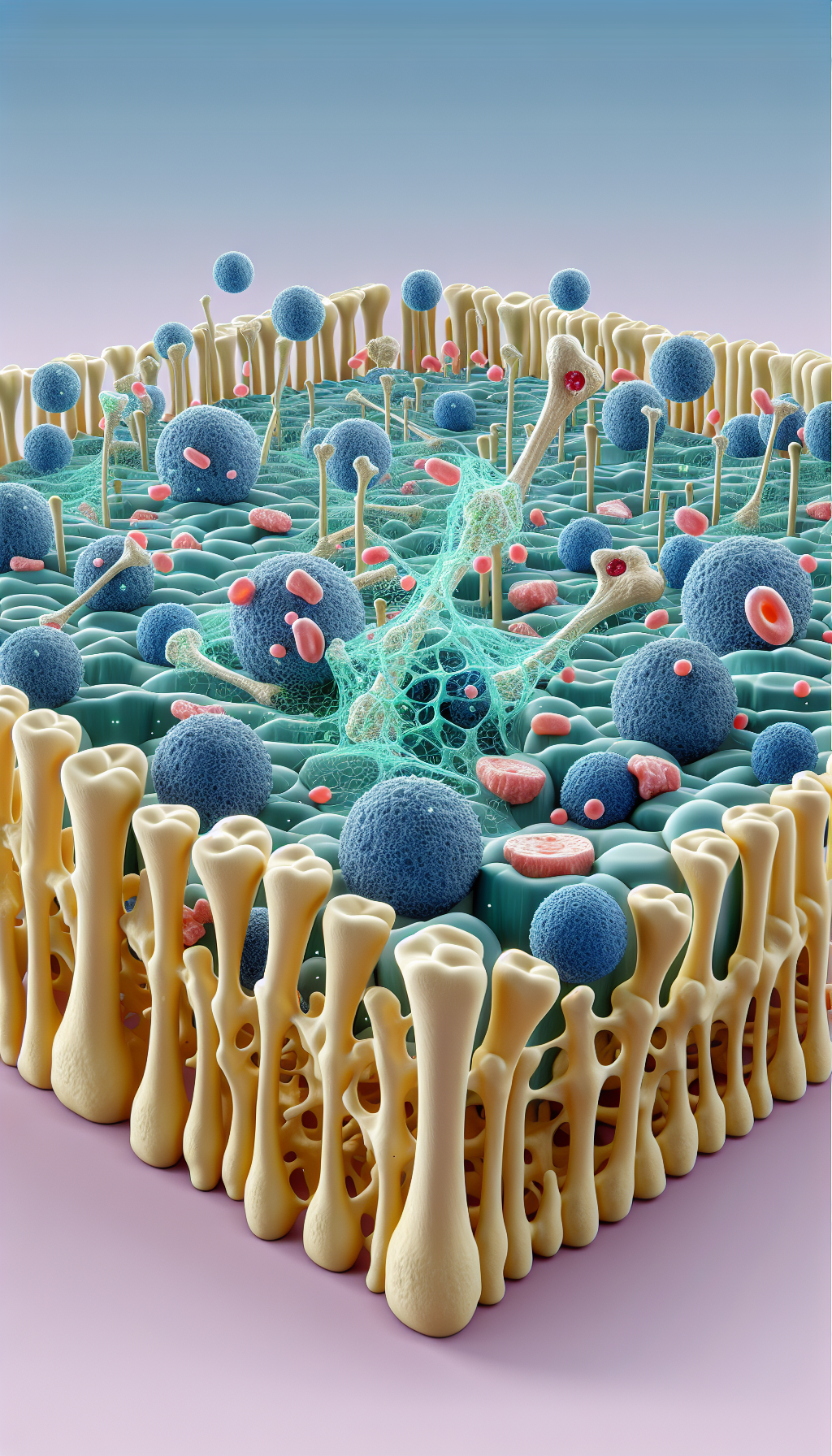Bone health is a crucial aspect of overall well-being, often overshadowed by other health priorities. However, the strength and density of our bones are foundational to our ability to move, function, and live actively. While factors such as diet and exercise are well-known influences on bone health, genetics also plays a significant role. This article will delve into the genetic factors that affect bone health and how understanding these can help in the prevention and management of bone-related diseases.
Genetic Factors and Bone Density
Bone density is a measure of the amount of minerals, primarily calcium and phosphate, contained in a certain volume of bone. It is a critical marker for bone strength and the risk of fractures. Genetics determines up to 60-80% of the variance in bone mineral density (BMD) among individuals. Specific genes are involved in the regulation of bone formation, bone resorption, and the mineralization process.
For instance, variations in the vitamin D receptor gene can influence how well the body uses vitamin D, a nutrient essential for calcium absorption. Other genes that have been linked to bone density include those coding for collagen, a protein that forms a scaffold for bone mineralization, and the Osteoprotegerin gene, which plays a role in bone resorption.
Understanding your genetic predisposition can provide insight into your potential risk for osteoporosis, a condition characterized by low bone mass and deterioration of bone tissue. Early knowledge of these risks can lead to proactive measures in lifestyle and medical interventions.
The Interaction Between Genetics and Environmental Factors
While genetics lays the foundation for bone health, environmental factors and lifestyle choices can significantly influence how genes express themselves. These factors include nutrition, physical activity, hormone levels, and exposure to harmful substances like tobacco and excessive alcohol.
For instance, calcium and vitamin D intake are vital for strong bones, but their absorption and utilization can be affected by genetic variations. Physical activity, particularly weight-bearing exercises, can help to build and maintain bone density. However, the effectiveness of these exercises can vary based on individual genetic makeup.
For more detailed information on how lifestyle choices impact bone health, refer to Impact of Lifestyle on Bone Health.
Hormones and Genetics
Hormones play a central role in regulating bone density, and genetics can affect how our bodies produce and respond to these hormones. For example, the estrogen hormone is crucial for bone health in both men and women, and genetic factors can influence estrogen levels and receptors. Postmenopausal women, in particular, can experience a significant decrease in bone density due to reduced estrogen levels.
Further exploration on this topic can be found within the article on Bone Health for Postmenopausal Women.
Genetic Testing and Bone Health
Advances in genetic testing have made it possible to identify individual risk factors for bone diseases. Genetic tests can screen for specific markers associated with increased risk of osteoporosis and fractures. This information can be valuable in creating personalized prevention strategies, which may include dietary changes, exercise routines, and medication.
It is important to consult a healthcare professional before undergoing genetic testing, as the interpretation of results and subsequent recommendations should be made within the context of overall health and other risk factors.
For a comprehensive overview of tests available, Understanding Bone Density Tests offers an in-depth look.
Secondary Factors Influencing Bone Health
In addition to primary genetic factors, secondary genetic conditions can also influence bone health. These include diseases like cystic fibrosis, rheumatoid arthritis, and celiac disease, which can all have secondary effects on bone density. The management of these conditions is crucial for maintaining bone health.
External Resources for Further Reading
For those interested in the scientific details of genetics and bone health, several niche resources provide in-depth information:
- International Osteoporosis Foundation offers a wealth of resources on bone health, including the genetic aspects of osteoporosis.
- National Osteoporosis Foundation provides resources on prevention, treatment, and living with osteoporosis.
- The Journal of Bone and Mineral Research presents scientific articles and studies on bone health, including genetic research findings.
Genetic Research and Future Implications
Ongoing research in the field of genetics continues to unveil new genes and pathways involved in bone health. This expanding knowledge holds promise for the development of targeted therapies that could personalize treatment for bone diseases based on an individual’s genetic profile.
Conclusion
Genetics has a significant influence on bone health, but it is not the sole determinant. A combination of genetic information and lifestyle choices can lead to optimized bone health strategies. Awareness and education about the role of genetics in bone health can empower individuals to take charge of their bone health proactively and collaboratively with healthcare providers.
By understanding the complex interplay between our genes and our environment, we can better protect and strengthen our skeletal system – ensuring that our bones remain robust at every stage of life.



